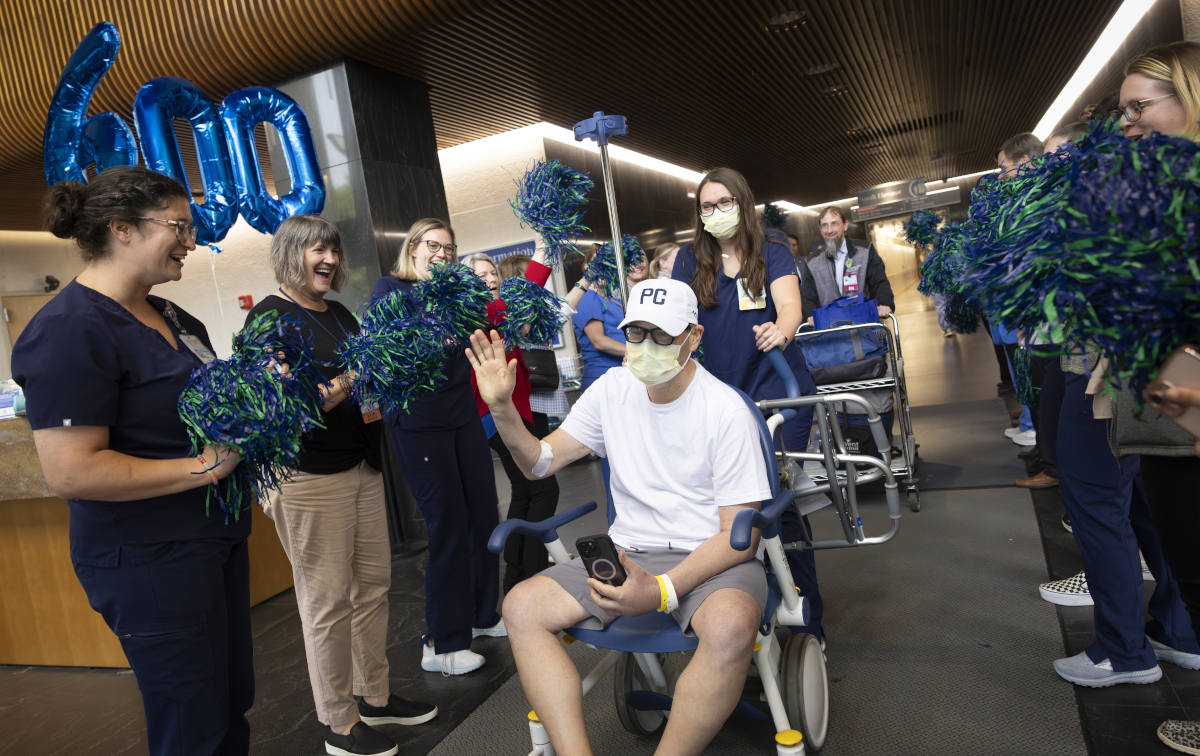The Real Heart Transplant Cost: A Comprehensive 2025 Guide

Key points
- Pre-Transplant Medical Care (30 days): ~$49,800 - $67,000. This includes extensive evaluations, testing, consultations, and care to stabilize the patient while awaiting a donor organ.
- Organ Procurement: ~$131,500 - $214,500. This covers the complex process of acquiring, preserving, and transporting the donor heart to the recipient.
- Hospital Admission for Surgery: ~$1,000,000+. This is the largest component, covering the surgical procedure, anesthesia, operating room fees, and the immediate, intensive post-operative hospital stay, which can last for several weeks.
- Physician Fees: ~$111,000. This encompasses the fees for the highly specialized surgical and medical teams involved in the procedure.
- Post-Transplant Care (180 days): ~$270,000. This includes follow-up appointments, lab tests, imaging, and rehabilitation in the first six months after discharge.
A heart transplant is a modern medical miracle, offering a second chance at life for individuals with end-stage heart failure. But this life-saving procedure comes with a staggering financial reality. The initial bill is just the beginning of a long and complex financial journey that includes lifelong medication, continuous care, and numerous hidden expenses.
This guide provides a comprehensive look at the true cost of a heart transplant, moving beyond the initial "sticker price" to uncover the total financial burden. We will explore insurance coverage, geographic cost variations, and the critical financial resources available to patients and their families.
The Sticker Price: A Breakdown of Initial Transplant Costs
When discussing the cost of a heart transplant, the most frequently cited figure comes from a 2020 Milliman Research Report, which places the average total billed amount at $1,664,800. This formidable number represents the initial phase of the transplant process and is far more than just the surgery itself.
According to analysis from GoFundMe and Medical News Today, this cost typically breaks down into several key areas:
- Pre-Transplant Medical Care (30 days): ~$49,800 - $67,000. This includes extensive evaluations, testing, consultations, and care to stabilize the patient while awaiting a donor organ.
- Organ Procurement: ~$131,500 - $214,500. This covers the complex process of acquiring, preserving, and transporting the donor heart to the recipient.
- Hospital Admission for Surgery: ~$1,000,000+. This is the largest component, covering the surgical procedure, anesthesia, operating room fees, and the immediate, intensive post-operative hospital stay, which can last for several weeks.
- Physician Fees: ~$111,000. This encompasses the fees for the highly specialized surgical and medical teams involved in the procedure.
- Post-Transplant Care (180 days): ~$270,000. This includes follow-up appointments, lab tests, imaging, and rehabilitation in the first six months after discharge.
 Paul Clifford celebrates his discharge from Milton S. Hershey Medical Center after his successful heart transplant. Image courtesy of Penn State Health News.
Paul Clifford celebrates his discharge from Milton S. Hershey Medical Center after his successful heart transplant. Image courtesy of Penn State Health News.
Beyond the Bill: Uncovering the Real Lifetime Cost
The nearly $1.7 million sticker price is only the beginning. The true financial burden of a heart transplant extends for the recipient's entire life, encompassing essential medications, indirect expenses, and ongoing care.
Lifelong Anti-Rejection Medication
To prevent the body's immune system from attacking the new heart, recipients must take powerful immunosuppressant medications every day for the rest of their lives. The cost of these vital drugs is substantial.
Data from Mayo Clinic and various health resources suggests that immunosuppressants can cost an average of $3,000 to $5,000 per month, or $36,000 to $60,000 annually, depending on the specific drug cocktail required.
This single expense represents a significant, lifelong financial commitment that is crucial for the transplant's success.
The Hidden and Indirect Costs
Beyond the direct medical bills, patients and their families face a host of "hidden" costs that can quickly accumulate:
- Travel and Accommodation: Transplants are performed at specialized centers. Patients and their families often have to travel long distances and may need to live near the hospital for weeks or months before and after the surgery, incurring costs for flights, lodging, and meals.
- Lost Wages: The recovery period is extensive. Both the patient and their primary caregiver will likely need to take a significant amount of time off work. This loss of income can place an immense strain on a family's finances.
- Caregiver Expenses: A dedicated caregiver is essential during recovery. This role may require a family member to take an unpaid leave of absence from their job.
- Rehabilitation: Cardiac rehabilitation programs, which are vital for recovery, come with their own set of costs and co-pays.
Navigating the Insurance Maze
While the total costs are daunting, most patients are not expected to pay the full amount out of pocket. Health insurance is the primary tool for managing these expenses, but coverage is complex and varies widely.
Types of Insurance Coverage
- Private Insurance: Most employer-provided or marketplace plans cover heart transplants but will require patients to pay deductibles, co-pays, and co-insurance. It is essential to verify that the chosen transplant center is "in-network" to avoid exorbitant out-of-network charges.
- Medicare: Medicare covers heart transplants for eligible individuals, typically those aged 65 or older or with certain disabilities. However, the procedure must be performed at a Medicare-approved facility. Patients are still responsible for Part A and Part B deductibles and 20% co-insurance for doctor's services and some medications.
- Medicaid: As a state-run program for low-income individuals, Medicaid may cover transplant expenses for eligible patients. However, coverage rules and eligibility differ significantly from state to state.
Factors That Influence the Final Cost
The final bill for a heart transplant is not a fixed number. Several factors can cause it to fluctuate, sometimes dramatically.
Geographic and Institutional Disparities
Where you live and which hospital you choose can have a major impact on your medical journey and its cost. Research has shown that a patient's geographic location can create significant disparities in transplant access.
Furthermore, in regions with multiple competing transplant centers, a phenomenon of "potential overtreatment" can occur. Some centers may use more aggressive, costly therapies to elevate a patient's status on the waiting list, not purely for medical necessity but to secure a donor heart faster in a competitive environment.
The Financial Gatekeeper: The "Ability to Pay" Requirement
A challenging and often controversial aspect of the transplant process is "financial gatekeeping." Virtually all U.S. transplant centers require patients to demonstrate that they have sufficient financial resources to cover not just the surgery, but the lifetime of post-operative care.
Hospitals argue this "wallet biopsy" is a pragmatic measure to ensure the long-term success of the precious, scarce donor organ. With over 100,000 people on the national organ waiting list, centers want to ensure a recipient can afford the anti-rejection drugs and follow-up care vital for survival.
However, this practice raises serious ethical questions about fairness and access to care. It creates a system where a patient's socioeconomic status can become a barrier to receiving a life-saving procedure according to KFF Health News.
Financial Lifelines: Resources for Managing Costs
Faced with such overwhelming costs, many families need help. Fortunately, a network of support exists to provide financial assistance.
- Non-Profit Organizations: Several foundations offer grants and aid for transplant patients. These include:
- Crowdfunding: Platforms like GoFundMe have become a critical tool for thousands of families, allowing them to raise funds from their communities to help cover out-of-pocket medical bills and associated costs.
- Hospital Financial Counselors: Every transplant center has financial coordinators or social workers dedicated to helping patients navigate insurance, apply for aid, and create a financial plan.
The Value Proposition: Is a Heart Transplant Worth the Cost?
While the financial cost is immense, the value of a heart transplant is measured in years of life and improved quality. For patients with end-stage heart failure, the prognosis without a transplant is grim, with life expectancy often measured in months.
A successful transplant can extend a person's life by an average of 8.5 to 13.8 years, and many recipients live for decades longer. The procedure dramatically improves quality of life, allowing individuals to escape the debilitating symptoms of heart failure and return to active, fulfilling lives. When analyzed by healthcare economists in terms of Quality-Adjusted Life Years (QALYs), heart transplantation is considered a highly cost-effective medical intervention, providing profound value that transcends its monetary price.

About the author
Marcus Thorne, MD, is a board-certified interventional cardiologist and a fellow of the American College of Cardiology. He serves as the Chief of Cardiology at a major metropolitan hospital in Chicago, specializing in minimally invasive cardiac procedures.